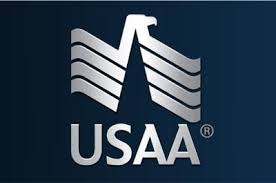With Memorial Day and Flag Day at our backs, and as we approach the Fourth of July, we have been thinking of a particular group of our homeless friends, veterans. Even though we recently saw a small decrease in veteran homelessness in Dallas, we refuse to rest on our laurels, until we have brought each veteran home. We agree with the United States Interagency Council on Homelessness, when they say, “Urban, suburban, and rural communities alike have proven that we can drive down the number of Veterans experiencing homelessness to as close to zero as possible, while also building and sustaining systems that can effectively and efficiently address Veterans’ housing crises in the future.” We want to use every tool in our toolbox to make this vision a reality here in Dallas, too.
In a previous post on our old blog, back in October, we wrote: “Using a progressive engagement approach, we serve each person, according to their needs, prioritizing those who need the most help. Not surprisingly, most people don’t need a huge amount of help, and those who do, vary by their level of vulnerability and scope of need.” That said, even those who need a greater amount of help, sometimes have a minor but impactful expenditure, that if not paid for, can impede them in their effort to end their homelessness.

This was certainly true in the case of Tom*, a 57-year-old veteran, staying at The Bridge (pictured above). Working with his case manager, Michelle Smith (pictured below), he first obtained a Dallas Housing Authority (DHA) voucher, that would cover not only his rent, but his utilities too. Finding a voucher is always just the beginning; then one must find an apartment. Tom and Michelle found an apartment. And, even though Tom does not have a regular source of income, he was able to scrape together enough money to pay the rental application fee, and the complex approved him for the apartment!
There was, however, the “small” matter of the deposit. Tom needed to put down $350. Only then could DHA perform their inspection of the apartment, approve it, and Tom could move in. With no income and no support network, this was going to be a problem.
Well, in theory, it would have been a problem; not in practice. Michelle had a tool in her case manager tool box, that was designed to solve just this type of problem, the MDHA Flex Fund. The idea of the Flex Fund is simple. A minor but impactful expenditure impedes a client from (making progress in) ending his or her homelessness. The Flex Fund pays for it. That’s all there is to it.

The Flex Fund was co-founded by MDHA and United Way of Metropolitan Dallas, in the Fall of 2015. Since then, it has been supported by a variety of private funders, including the Bank of America Charitable Foundation, the Dallas Baptist Association, the Hillcrest Foundation**, the Holloway Family Foundation, the Katherine Carmody Charitable Trust**, the King Foundation, the Moody Foundation, the Orix Foundation, the Sturgis Charitable Trust**, the Wells Fargo Foundation and the Zale Foundation.
Last year, though, MDHA asked for and received a unique grant for the Flex Fund. USAA Bank, which caters to active and former members of the military, had expanded its corporate presence in Dallas. They reached out to us to see what they could do to help alleviate veteran homelessness. We gave them a few ideas, and also suggested that they contribute to the Flex Fund, and that we use whatever they give us to help veterans only. They agreed, and the USAA Foundation contributed $15,000 last Fall. This special “pot” of money was tailor-made to help Tom!
All Michelle had to do was to complete a simple one-page Flex Fund request form. The form asks for: the client’s information, the solution needed, the cost and the vendor, how this solution would help the client end his or her homelessness, and the explanation of why other resources cannot provide the solution. She attached the necessary documentation, had the form co-signed by her boss, and emailed it all to FLEX@MDHADallas.org.

Now, if you know anything about apartment hunting in this market, you know that time is of the essence. That is why MDHA always tries to approve requests and provide payment directly to the vendor, within 24-48 hours. Accordingly, in this case, Shavon Moore, Director, Coordinated Access and Assessment, had a check quickly cut, so Michelle could pick it up, and deliver it to the leasing office. With that, DHA performed their inspection, approved the apartment, and Tom moved in, ending his homelessness. We and USAA are happy we had a small part in making that happen.
* Tom’s name is not really Tom; then again, you probably knew that…
** Bank of America, NA, Trustee





